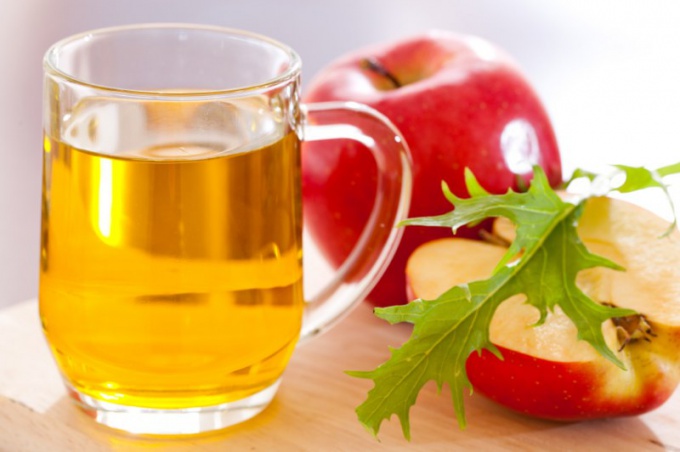In the language of facts
If to speak about Apple cider vinegar on the dry language of scientific facts, it is known that it contains the following nutrients:
- potassium, which is responsible for functioning of all cells in the human body;
- pectin, which helps to regulate blood pressure and reduce cholesterol levels;
- malic acid, has antiviral, antibacterial and antifungal properties;
- the calcium into the bones;
- acetic acid that reduces the blood glucose level.
Summing up, Apple cider vinegar is a good way to combine tasty with healthy. In a vinaigrette dressing, it will give the dish spicy, a marinade will exhibit your flavor and is not as sharp as vinegar, Apple vinegar are gorgeous fragrant berry condiments. And that's not all what this "hero" is capable of in the kitchen.
Apple cider vinegar and fruit or vegetables
Spread 1 tablespoon of Apple cider vinegar in 1 liter of water and soak in this solution fruits or vegetables. This will help remove the surface residues of chemical substances that the products were sprayed during storage, kill decay-causing bacteria. After soaking you will only need to rinse the fruits of ordinary boiled water.
Like lemon juice, Apple cider vinegar prevents the oxidation of peeled apples, pears, potatoes in the air. Put the cut pieces in a solution (1 tablespoon of Apple cider vinegar in 1 litre of water) or sprinkle them in slices, and they will turn brown.
Use 1 tablespoon of vinegar instead of the ½ teaspoon of salt when boiling or cooking vegetables for a couple. It will give products not only salty taste but also will preserve the saturated bright color.
If you don't like the sharp smell of cabbage, add Apple cider vinegar to the water in which you boiled or stewed cabbage and there will be a "miracle."
Apple cider vinegar and eggs
Add 1 or 2 tablespoons of Apple cider vinegar in the water in which you boil eggs to prevent cracks and leakage of protein.
In baking 1 tablespoon of Apple cider vinegar can replace 1 egg.
Apple cider vinegar, and meat
If you add Apple cider vinegar to a marinade for meat, it will kill bacteria and soften tough meat. Use 50 ml of Apple vinegar for each pound of pulp.
Apple cider vinegar softens the taste of venison and scores of branches, sharp smell.
If you boil corned beef, one tablespoon of Apple cider vinegar added to the water, able to remove the excess salt.
Oil Apple cider vinegar cropped portion of ham or sausage, if you have no refrigerator to avoid the formation on the cut mold.
Apple cider vinegar and seafood
If you rinse the hands in water with Apple cider vinegar, you'll instantly get rid of the obsessive smell of fish.
If frozen seafood before cooking, marinate in a mixture ( 1: 1) of Apple cider vinegar and sherry, they will return to the aroma and taste of fresh.
Apple cider vinegar in baking
Add 1 tablespoon of vinegar for every 2 ½ cups of flour to help the dough "rise". Don't forget to reduce the amount of water added to the dough, to equal the input volume of vinegar.
To pie crust, biscuits or bread relish glistening, brush it for two minutes until tender Apple cider vinegar.
Apple cider vinegar stabilizes the protein in the preparation to the French meringues. To do this, for every three of protein you need to add 1 teaspoon of Apple cider vinegar.
And...
When boiling pasta, add 1 tablespoon of vinegar for every litre of water and do not salt. This will give the pasta a salty flavor and helps prevent "clumping". In the same proportion add Apple cider vinegar to get the fluffy, crisp rice.
Using Apple cider vinegar you can easily make:
- substitute for sour cream, mix 1 Cup of fat cottage cheese, ¼ Cup milk and 1 teaspoon vinegar;
- buttermilk by adding a tablespoon of vinegar in a glass of milk and leaving for 5 minutes to thickened;
substitute wine vinegar by mixing 2 tablespoons of Apple cider vinegar with 1 teaspoon of dry red wine.
